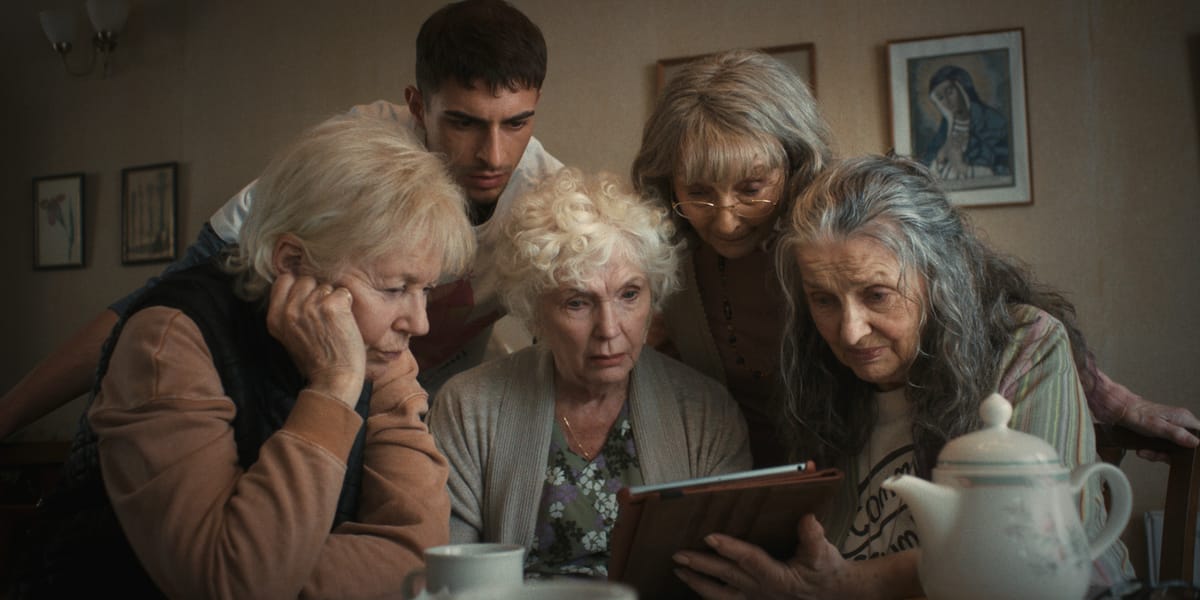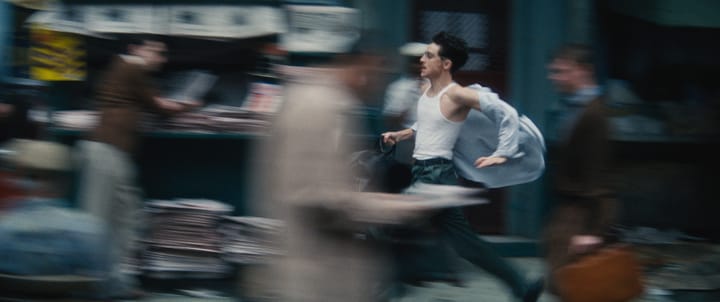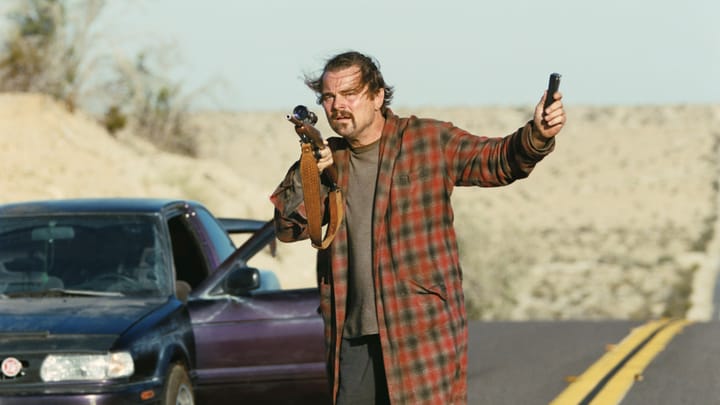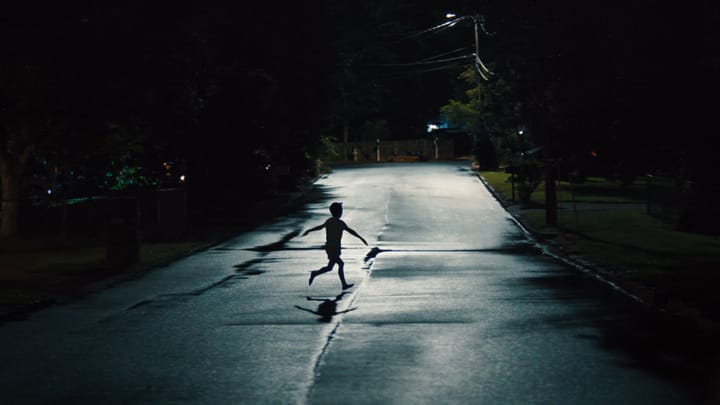SIFF 2025: Four Mothers

Seattle International Film Festival 2025's opening film is safe. By all accounts, that's what a festival opener should be. A light crowd pleaser that can play to all audiences and flood the balconies of the Paramount Theatre with uproars of laughter, to join in the community of the cinematic experience. It does play to SIFF's strengths, to be progressive, diverse, and international - but its particular brand of saccharine sentimentality also betrays the feeling of freedom that festivals invite. For all of the film's lamenting on the suppression of creative expression and the ways that media seek to flatten all text into simple, surface level frivolities, the film never feels as if there's much beneath its own frivolities – more interested in passing glances at contemporary struggles than interrogating any kind of true interpersonal struggle.
The film is predicated on these interpersonal struggles, chiefly that between protagonist Edward (James McArdle) and his mother Alma (Fionnula Flanagan). Edward, a perennial pushover with a severe people-pleasing streak, has found himself in the position of being a full time carer for recent stroke victim Alma, dedicating the majority of his time to assisting her through the day while he finds small pockets of time to work on his writing career. His debut book, a queer romance about the tumultuous relationship between two young men, has recently found viral success on TikTok in America, and his responsibility to his mother is causing friction in his ability to promote his work. As a premise, it's an easy buy-in for sympathy – this character is endlessly dedicated to doing the right thing, but his desire to do right by his mother is also preventing him from experiencing the life he deserves to live.
It almost feels like the film's challenge is to burn through its own good will, as Edward quickly shifts from sympathetic people-pleaser to an infuriating doormat who refuses to ever stand up for himself. Everyone treats him like the pushover he is and nobody ever receives pushback for it, and largely these situations are presented as light comedy to establish an increasingly absurd scenario. Edward's friends, gay men who are similarly struggling with the feeling they are unable to live their lives and experience their community while caring for their own ailing mothers, unceremoniously abandon their mothers on his doorstep while they whisk themselves away to Maspalomas Pride. Edward's therapist does the same, a man who is beginning to feel like life has passed him by after living decades as a closeted gay man with a wife and child. While this admittedly absurd setup invites the possibility of questioning the morality of these characters, Edward included, it instead carries on as light, sentimental drama.
Everything here is largely as expected from every aspect of its premise. A young man and four eccentric Irish women struggling with their age and their conditions, overcoming their challenges and slowly becoming closer over the course of a weekend. Lighthearted and comedic, rarely missing the opportunity to turn a genuine moment into a punchline rather than linger on the essence of pain or suffering. To this degree, the film seems self-aware – Edward's struggle to promote his book comes not just from his inability to travel to America because he's too preoccupied with taking care of his mother, but from his inability to present his book as a palatable romance for impressionable web audiences to latch onto. He is instead, to his own detriment, focused on the subtext he views as the core of the book; its ideas about colonialism, identity, and the pains of experiencing love, what he views as something deeply aromantic despite his book's presentation as a decades spanning romance.
Maybe that's what the people want – easily digestible stories around mending relationships, about simple forgiveness, films that can depict a palatable image of what it means to be queer without ever having to dig too dip into the internality of it. Four Mothers just seems to want it both ways, to be simple and saccharine, and to also gesture towards wider ideas without having to dig deeper into them. At SIFF's opening night Q&A, screenwriter Colin Thornton described the film as being about "four women who are afraid to die, and one man who is afraid to live," but the film never feels like it's expressing that notion. Edward is a pushover who spends the movie attached to the whims of everyone else around him, seemingly learns little to nothing about himself or about how to live his life more fully, and yet he ultimately achieves all of his goals not because he overcomes any personal battle, but because everyone around him finally acquiesce to his needs for once. It feels cheap and almost frustratingly generous to every other character, who are never challenged to consider the damage their own actions have wrought on Edward.
There is a lot here, but it is disparate – missing connective tissue, too pursuant of its comedic leanings to ever truly embroil itself in the wistful melancholy it deserves. There are moments where there is a clear voice that is pushing towards something more meaningful, moments where characters drop the overtuned dry sarcasm and feel sincere and realized, but it is constantly undercutting itself, and its resolution feels less like a resonant moment of reflection and more like an odd limbo, a brief respite from a life that will soon continue unchanged. Safe.

SIFF 2025 takes place from May 15-June 1, 2025. Find out more information about the fest here, and find continued coverage here on Step Printed.




Comments ()